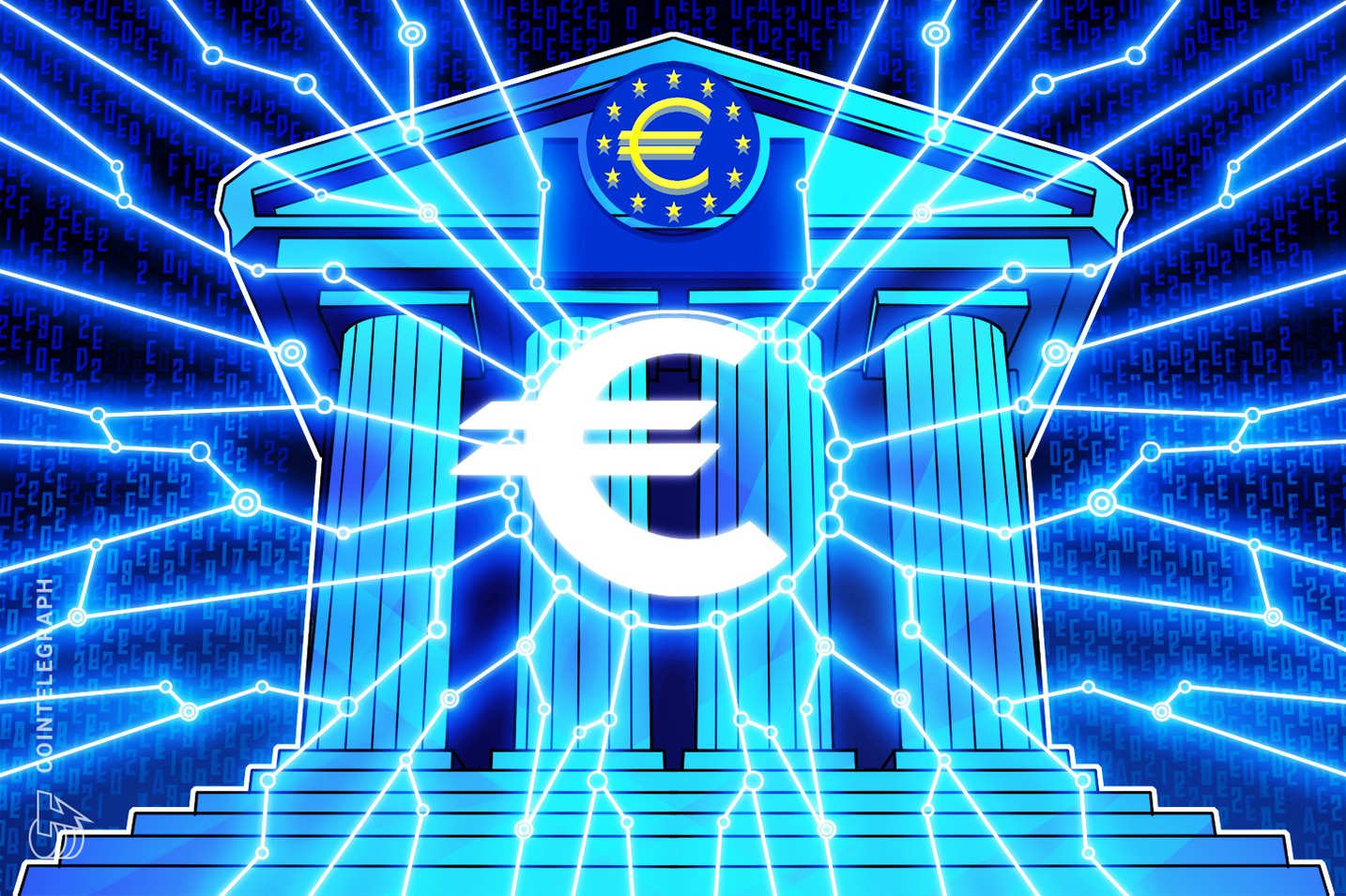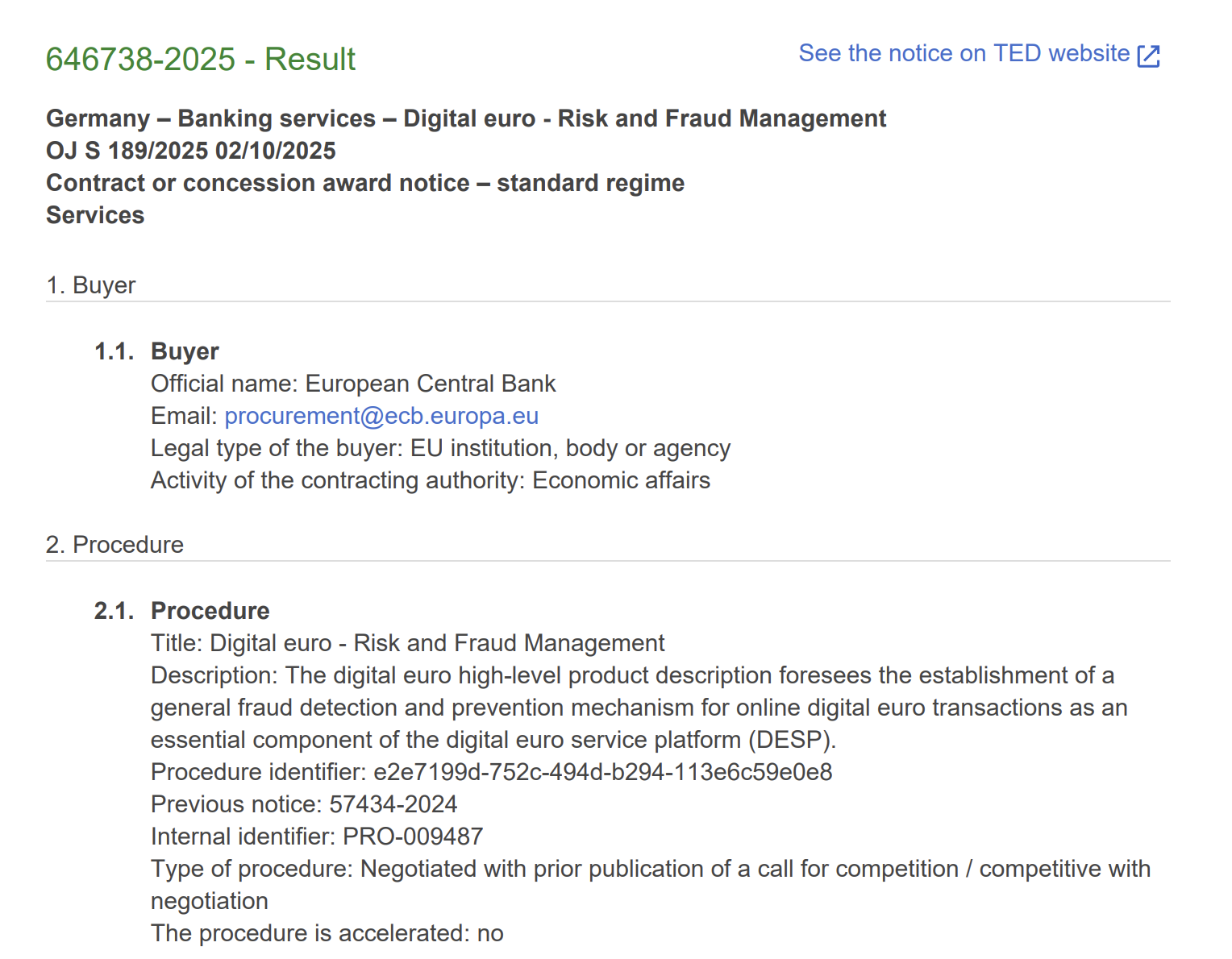
The European Central Bank (ECB) has announced framework agreements with seven technology partners to enhance the components of a central bank digital currency (CBDC) that could see a potential launch by 2029.
In its announcement, the ECB detailed that it is collaborating with these entities to ensure effective management of fraud and risk and to support secure transaction exchanges for a future digital euro. Among the chosen firms is Feedzai, known for employing artificial intelligence in fraud detection, alongside Giesecke+Devrient, a company specializing in security technologies.
“Following the framework agreement conclusion, G+D and other successful tenderers will work with the ECB to finalize planning and timelines,” said Dr. Ralf Wintergerst, CEO of Giesecke+Devrient. “Under the guidance of the ECB Governing Council and in line with EU legislation, this work will cover the design, integration, and development of the Digital Euro Service Platform.”
 Agreements with technology companies for risk and fraud management of the potential digital euro. Source: ECB
Agreements with technology companies for risk and fraud management of the potential digital euro. Source: ECB
The ECB’s exploration of a digital euro began in 2021, transitioning to this phase late in 2023. While the bank has noted that a decision on the CBDC’s launch will follow the adoption of the Digital Euro Regulation, possibilities for a rollout as early as 2029 have been indicated.
“The actual development of the components — or parts thereof — will be decided at a later stage, subject to the ECB Governing Council’s decision on the potential next phase of the project,” the ECB emphasized. “Framework agreements do not involve any payment at this stage…”
In addition, technology firms will facilitate features such as ‘alias lookup’ to enable users to transact without detailed knowledge of each other’s payment service providers, while Giesecke+Devrient will also work on offline payment capabilities with digital euros.
EU concerns on stablecoins
Amidst discussions of a digital euro, ECB and EU financial authorities have raised alarms regarding the potential risks introduced by various stablecoins. This stance is notably different from the United States, where Congress and former President Donald Trump enacted a stablecoin regulatory framework in July.
In September, ECB President Christine Lagarde stated that EU legislators must collectively address the risks linked with stablecoins issued by both regional and non-EU entities. Meanwhile, the European Systemic Risk Board has reportedly recommended a non-legally binding stance on jointly issued stablecoins.
Related: A third of central banks cool on launching CBDCs over regulatory concerns
